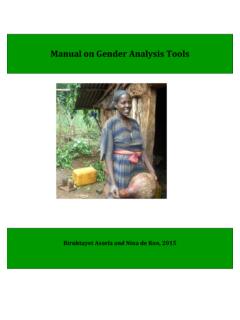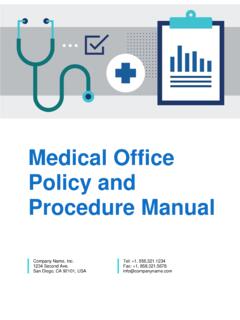Transcription of DO M ESTIC VIOLENCE TRAINING for New Staff Volunteers
1 domestic VIOLENCE TRAININGfor New Staff & VolunteersCurriculumNorthnode Cover 14/29/2015 10:44:42 AM domestic VIOLENCE TRAINING FOR NEW Staff AND Volunteers CURRICULUM DEVELOPED BY NOVEMBER 2008 CONTENTS PAGE INTRODUCTION TO THE CURRICULUM .. i ii CHAPTER ONE: INTRODUCTION TO THE AGENCY/ORGANIZATION AND TO THIS TRAINING 1-1 CHAPTER TWO: THE CONTEXT FOR OUR WORK, PART 2-1 The language we use .. 2-3 History of the battered women s movement .. 2-5 Understanding the roots of intimate partner VIOLENCE .. 2-6 Various approaches to domestic VIOLENCE 2-7 Seeking and incorporating the perspectives of survivors .. 2-8 The roles of men in responding to domestic VIOLENCE .. 2-9 CHAPTER THREE: THE CONTEXT FOR OUR WORK, PART TWO .. 3-1 Race, class, and cultural dimensions of intimate partner VIOLENCE .
2 3-3 Responding holistically to all who experience domestic VIOLENCE .. 3-7 Looking upstream: prevention of domestic and sexual VIOLENCE .. 3-9 CHAPTER FOUR: PRACTICES THAT SUSTAIN US IN THE WORK SELF 4-1 Secondary traumatic 4-3 Secondary traumatic stress 4-4 Preventing secondary traumatic stress disorder .. 4-5 CHAPTER FIVE: WHAT IT MEANS TO EXPERIENCE domestic VIOLENCE .. 5-1 Defining domestic VIOLENCE .. 5-3 Common myths about domestic VIOLENCE .. 5-9 The cycle of VIOLENCE .. 5-10 Challenges to leaving a violent relationship .. 5-11 The connection between domestic VIOLENCE and sexual 5-14 The impact of domestic VIOLENCE on adults who are battered .. 5-16 The impact of domestic VIOLENCE on children .. 5-20 CHAPTER SIX: PERPETRATORS OF domestic VIOLENCE .. 6-1 Characteristics of perpetrators .. 6-3 Why people 6-5 Batterer intervention.
3 6-6 Perpetrators as parents .. 6-8 CHAPTER SEVEN: RESPONDING TO domestic VIOLENCE : SERVICES PROVIDED .. 7-1 Hotline 7-2 Contents Safety planning and danger 7-4 Community based services .. 7-6 Residential 7-8 Services for children affected by domestic VIOLENCE .. 7-10 Supervised visitation 7-11 CHAPTER EIGHT: RESPONDING TO domestic VIOLENCE : HOW WE DO THE 8-1 Empowerment and the delivery of trauma-informed services .. 8-3 Advocacy 8-6 Counseling and communication skills .. 8-7 Supporting survivors cultural and spiritual values and resources .. 8-10 Confidentiality and record 8-11 Mandatory reporting of suspected abuse or neglect .. 8-12 CHAPTER NINE: LEGAL ISSUES RELATED TO domestic 9-1 Introduction to the court system .. 9-3 Chapter 9-5 Custody and 9-7 Child 9-9 Guardians ad litem.
4 9-10 Immigrants in Massachusetts courts .. 9-11 The role of law enforcement in providing protection from abuse .. 9-12 Legal advice or legal information? .. 9-13 CHAPTER TEN: WRAPPING UP .. 10-1 Materials of general Resources for chapter two: The context for our work, part one ..R-1 Resources for chapter three: The context for our work, part two ..R-2 Resources for chapter four: Practices that sustain us in the work self care ..R-3 Resources for chapter five: What it means to experience domestic VIOLENCE ..R-3 Resources for chapter six: Perpetrators of domestic VIOLENCE ..R-4 Resources for chapter seven: Responding to domestic VIOLENCE : services provided ..R-4 Resources for chapter eight: Responding to domestic VIOLENCE : how we do the work ..R-5 Resources for chapter nine: Legal issues related to domestic VIOLENCE .
5 R-5 New Staff and volunteer TRAINING Manual Developed by Northnode, Inc. domestic VIOLENCE TRAINING FOR NEW Staff AND Volunteers INTRODUCTION TO THE CURRICULUM domestic VIOLENCE TRAINING for New Staff and Volunteers is a basic TRAINING curriculum on domestic VIOLENCE that orients new Staff and Volunteers to the world of domestic VIOLENCE services, providing the information needed to begin this important work. Northnode, Inc. received funding for the development of this curriculum from the Massachusetts Department of Children and Families (DCF, formerly, the Department of Social Services). Northnode s mandate under its contract with DCF was to develop a core TRAINING curriculum that DCF-funded domestic VIOLENCE service agencies can use to meet their obligations to provide pre-service TRAINING for all new Staff and Volunteers .
6 To meet this mandate, Northnode brought together a team of experienced trainers from across Massachusetts. At various points in the development of the curriculum, the team included trainers from Brockton Family and Community Resources, Elizabeth Stone House, HAWC, Independence House, REACH, RESPOND, and the YWCA of Western Massachusetts. The team facilitated focus groups for providers from every region of Massachusetts to share our thinking and to gather input from as many people as possible. In draft form, the curriculum was field tested by trainers from Elizabeth Stone House, Independence House, and the YWCA of Western Massachusetts. It was reviewed by Staff from Jane Doe, Inc., Children s Charter, and the YWCA of Greater Lawrence. The result of this effort is a comprehensive TRAINING curriculum that reflects the long history of the battered women s movement as well as current and emerging thinking on how we can best respond to the complex challenges faced by those who have experienced or struggle with intimate partner VIOLENCE .
7 By working with this material, TRAINING participants have an opportunity to learn about this history, explore the newest thinking in the field, and join in the overall effort to continuously improve our responses to all who are affected by domestic VIOLENCE . AN ACKNOWLEDGMENT The domestic VIOLENCE TRAINING for New Staff and Volunteers was created with funding from the Massachusetts Department of Children and Families (DCF), formerly the Department of Social Services. Throughout the course of this project, DCF Staff oversight took the form of regular and gentle prodding, consistent support, and recognition of Northnode's need for independence in the development of the curriculum. This approach suggests a level of trust that is deeply appreciated and that we have worked diligently to sustain.
8 The project began two years ago when Northnode invited providers from across Massachusetts to be part of a Curriculum Development Team (CDT). Those who responded gave an enormous amount of time and heart to the effort. In addition to bringing a real depth of experience, these individuals represented a diverse group of provider agencies, including those that offer the full continuum of domestic VIOLENCE services, those that focus solely on community-based services, and those that serve survivors of both sexual and domestic VIOLENCE . During the process of creating this curriculum, the CDT met with individuals whose areas of expertise complemented those of the team. The focus groups we conducted with domestic VIOLENCE service providers drew more than 30 individuals from 21 different agencies/ organizations. These individuals generously shared their thoughts about what subjects to include and how to address them.
9 Recognizing that a number of agencies/organizations using this curriculum also use the Sexual Assault TRAINING Curriculum for New Counselors and Advocates developed by Jane Doe, Inc., we interviewed individuals from seven of these "dual" agencies. These interviews helped us to better understand how trainers use the Jane Doe curriculum, so that we could make this curriculum as compatible with the sexual assault curriculum as possible. When they field tested the curriculum, trainers from Elizabeth Stone House, Independence House, and the YWCA of Western Massachusetts had to orient new Staff and Volunteers to their respective agencies/organizations and at the same time pause to explore with TRAINING participants the clarity and effectiveness of the material being presented. This may have been one of the more challenging TRAINING experiences for them, and their patience with the process is applauded and appreciated.
10 Finally, the curriculum was reviewed in draft form by several individuals with significant experience as direct service providers and trainers. The comments and suggestions of these reviewers and field testers made a significant impact on the final version of this curriculum, and their willingness to find the time to undertake this review is deeply appreciated. The people who participated in one or more of these efforts constitute an impressive group that includes: Adrianne Levesque, Barbara Drew-Rivera, Beth Leventhal, Betsy McAlister Groves, Bonnie Gage-Anderson, Carl Allen, Carmen Nieves, Chris Liebke, Dale Brown, Debbie Crispo, Debra Robbin, Erin Banner, Gale Brunault, Janet Vigo, Jessica Hollander, Jo Patterson, Kathleen Facchini, Kathy Garron, Kathy Kelley, Koko Oyama, Lisa Tieszen, Liza Sirota White, Marci Diamond, Maria Rodman, Melissa Lockman, Meridith McGee, Michele Penta, Michelle Fine, Nicole Correia, Nicole Richon-Schoel, Nila Patterson, Paula Coutinho, Rebecca Arruda, Rick Watkins, Rob Dobson, Sheila Radziewicz, Shelley Yen, Stephanie Howard, Susan Criscione, Susan Jenkinson, Susan Staples, and Terri Maxfield.




